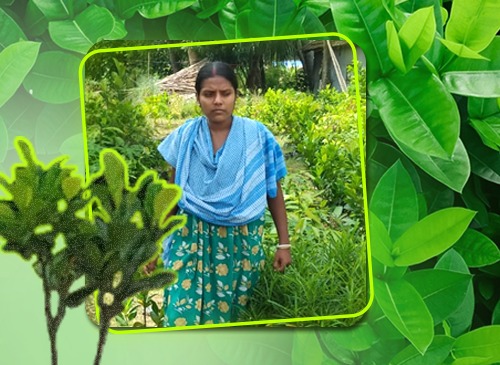In my last blog, I mentioned that Durga Puja contributes Rs32,377 crore to the economy, especially from retail, food & beverages, installations and idol-making, amounting to around 2.6% of West Bengal’s GDP. We also know that while there were some signs of recovery in retail and F&B during the 2021 festival, even with some COVID19 restrictions in place, idol-making and installations need a boost that, hopefully, next year’s pujas will provide.
For idol-makers, though we have many religious occasions throughout the year, a slump in Durga Pujas translates to a major dip in their business. At least that is what Dipa Kar validated during our discussions with her.
Dipa, a member of the Amardeep JLG of Village Financial Services, in the Howrah district, is a Sri Briddhi customer. Dipa and her husband started pottery and idol-making around 25 years ago. Better access to markets made them move away from their ancestral village and set up shop in Bauria near Howrah, where they had bought land.
The business was doing well enough for them to employ workers. But then the COVID19 pandemic put everything into a tailspin. Dipa had to let go of the workers and run the show with her husband and son. It is not that orders have stopped, since religious events go on, but the orders were for smaller or cheaper idols. The mounting costs have been adding to their woes.
With the UNESCO announcement, many like Dipa are hoping that festivals will look up in 2022 and business will go back to pre-COVID times. Idol-making accounts for Rs260-280 crore in the total economic worth of the Durga Puja festivals. While we must comply with the COVID19 guidelines, we also need a quick revival of business for the sake of sustenance of those whom we have supported to bring out of their financially challenged lives.
Growth in demand is just a first step towards revival for potters; the next challenge that the idol-makers will face is getting skilled teams. Many of the earlier workers have moved to other jobs, and skill-building is not an overnight task. While Dipa had access to local resources, many idol-makers recruit migrants for such jobs, migrants who have moved back and may not return overnight, just on a single call.
We also need to look at alternatives for such idol makers, especially those who have been in this business for decades. Maybe exploring low-cost non-religious idols for decoration and space management purposes would be a good idea. While I am not an expert here, I feel that businesses that make clay structures need a stable model.







